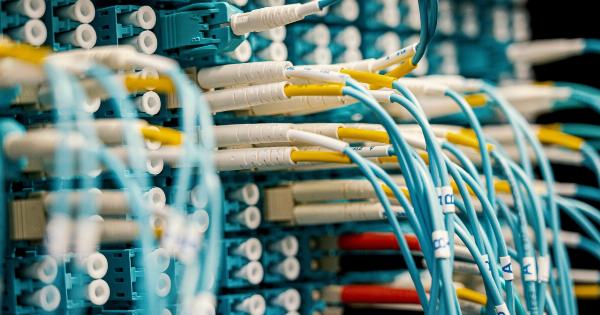Protein is an essential macronutrient that plays a crucial role in various bodily functions. It is responsible for tissue repair, muscle growth, and hormone production, among other vital functions.
However, there has been a prevailing myth that high protein intake can lead to kidney damage. In this article, we will debunk this myth and examine the scientific evidence surrounding protein consumption and kidney health.
The Role of Proteins in the Body
Proteins are made up of amino acids, which are the building blocks of life. They are necessary for the growth, maintenance, and repair of body tissues.
Additionally, proteins play a significant role in enzyme production, hormone regulation, and immune system functioning. Without an adequate protein intake, the body cannot perform these essential functions properly.
Kidney Function and Protein Metabolism
The kidneys are responsible for filtering waste products from the blood and maintaining overall fluid balance. Protein metabolism produces waste products, such as urea and ammonia, which require filtration and elimination through urine.
This process can lead to the misconception that high protein intake puts a strain on the kidneys and causes damage.
Scientific Studies on Protein and Kidney Health
Numerous scientific studies have examined the relationship between protein intake and kidney function. Contrary to the popular belief, these studies have consistently shown that a high protein diet does not cause kidney damage in healthy individuals.
One such study published in the Journal of the International Society of Sports Nutrition found that high protein intake did not negatively affect kidney function in resistance-trained athletes.
Furthermore, a review article published in the Journal of Nutrition concluded that there is insufficient evidence to support the claim that high protein intake harms kidney function in healthy individuals.
The study examined multiple clinical trials and observational studies, demonstrating no adverse effects of high protein diets on kidney function.
Protein and Kidney Disease
While high protein intake is generally safe for healthy individuals, it is worth mentioning that individuals with pre-existing kidney disease may need to limit their protein consumption.
In cases where the kidneys are already compromised, excessive protein intake can increase the workload on the kidneys, potentially worsening the condition. However, it is essential to note that this caution is specific to those with kidney disease and not the general population.
Key Factors Influencing Kidney Health
Several factors play a more significant role in kidney health than protein intake alone. These factors include overall dietary habits, hydration, blood pressure, and pre-existing conditions such as diabetes or hypertension.
For most individuals, a balanced diet, regular exercise, and proper hydration are sufficient to maintain kidney health.
Protein Recommendations
The recommended daily intake of protein varies based on factors such as age, sex, and physical activity level. The general guideline for healthy adults is to consume 0.8 grams of protein per kilogram of body weight.
However, athletes and individuals engaged in intense physical activity may require higher protein intake to support muscle repair and growth.
It is worth noting that exceeding the protein requirements does not provide additional benefits, as the body can only absorb and utilize a certain amount of protein at once.
Consuming excess protein can lead to an increased caloric intake and potentially interfere with the balanced intake of other essential nutrients.
Conclusion
The myth that proteins cause kidney damage is unsubstantiated by scientific evidence. Extensive research has shown that high protein intake does not harm kidney function in healthy individuals.
However, those with pre-existing kidney disease may need to monitor their protein intake. Overall, a balanced diet, proper hydration, and a healthy lifestyle play more significant roles in maintaining kidney health than protein consumption alone.






























